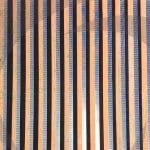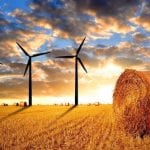Around The Web
NSW waves through 900MW solar farm for construction in Riverina
 Reach Solar's 900MW Yarrabee Solar Farm, approved for construction in NSW Riverina, will have capacity to power a city nearly twice the size of Newcastle.
Reach Solar's 900MW Yarrabee Solar Farm, approved for construction in NSW Riverina, will have capacity to power a city nearly twice the size of Newcastle.
The post NSW waves through 900MW solar farm for construction in Riverina appeared first on RenewEconomy.
How is oxygen 'sucked out' of our waterways?
SolarEdge teams with Google to integrate automated EV Charging
 The first of its kind, this integrating technology means that consumers can now tell their Google Assistant to start and stop charging of their electric vehicle.
The first of its kind, this integrating technology means that consumers can now tell their Google Assistant to start and stop charging of their electric vehicle.
The post SolarEdge teams with Google to integrate automated EV Charging appeared first on RenewEconomy.
US on verge of 139GW solar boom
 New research reveals the United States sits on the precipice of what could be a monumental solar boom set to play out over the next five years.
New research reveals the United States sits on the precipice of what could be a monumental solar boom set to play out over the next five years.
The post US on verge of 139GW solar boom appeared first on RenewEconomy.
Booming solar market triples in 2018, set to deliver “Hazelwood + Liddell” by 2020
 Solar's record-breaking 2018 is expected to continue into 2019, with forecasts of another 3GW-plus to be added in utility-scale solar alone, putting solar PV on track to deliver 10% of NEM demand by 2020.
Solar's record-breaking 2018 is expected to continue into 2019, with forecasts of another 3GW-plus to be added in utility-scale solar alone, putting solar PV on track to deliver 10% of NEM demand by 2020.
The post Booming solar market triples in 2018, set to deliver “Hazelwood + Liddell” by 2020 appeared first on RenewEconomy.
Australia’s “largest” wind farm wins planning approval for Victoria
 WestWind Energy's plans to build an 800MW wind farm in Victoria – potentially the largest in the Southern Hemisphere – win state government planning approval.
WestWind Energy's plans to build an 800MW wind farm in Victoria – potentially the largest in the Southern Hemisphere – win state government planning approval.
The post Australia’s “largest” wind farm wins planning approval for Victoria appeared first on RenewEconomy.
Government promises 'bold new goal' to tackle dirty air
Greg French: reflections from the natural world
US shutdown has heavy impact on country's national parks
What happens after you take injured wildlife to the vet?
James Watson: Scientist loses titles after claims over race
Guardian switches to potato starch wrapping
The 'no-buy' movement: could you give up buying clothes and beauty products?
With the fashion industry’s environmental impact under scrutiny, there’s a move to eschew new stuff and wear what you already own
Splashed out in the sales? Cashed in your Christmas gift cards? The average Briton spends more than £1,000 on new clothes and shoes each year, according to the statistics agency Eurostat – and many are shelling out much, much more. But with a focus now on the environmental impact of the fashion industry, some of the bloggers, vloggers and influencers who cut their teeth sharing details of an endless array of new clothes and products, are changing tack – enter the “no-buy” movement.
The idea is simple: instead of buying new clothes or beauty products, you make a commitment to use the things you already own. Some people, such as the beauty blogger Hannah Louise Poston, sign up to a “no-buy year” – and document their progress in much the same way that they once tracked their purchases. Others pledge not to buy for a few weeks or months or opt for “low-buy” options with a strict spending cap. A subreddit thread named MakeupRehab, offering tips and support for those undertaking not to buy new products, now has more than 50,000 subscribers.
Continue reading...Sustainable debt market sees record activity in 2018
 The sustainable finance market surged in 2018, with a record $247 billion worth of sustainability-themed debt instruments raised during the year, according to research company BloombergNEF (BNEF).
The sustainable finance market surged in 2018, with a record $247 billion worth of sustainability-themed debt instruments raised during the year, according to research company BloombergNEF (BNEF).
The post Sustainable debt market sees record activity in 2018 appeared first on RenewEconomy.
New Energy Efficiency Scheme to address climate change and reduce energy bills
 The ACT’s highly successful Energy Efficiency Improvement Scheme will be expanded to include several new programs and will be extended to 2030, Minister for Climate Change and Sustainability Shane Rattenbury announced today.
The ACT’s highly successful Energy Efficiency Improvement Scheme will be expanded to include several new programs and will be extended to 2030, Minister for Climate Change and Sustainability Shane Rattenbury announced today.
The post New Energy Efficiency Scheme to address climate change and reduce energy bills appeared first on RenewEconomy.
The Long Now: what will life be like in 10,000 years?
The women fighting fast fashion waste
Mathematician Sir Michael Atiyah dies aged 89
Spektr-R: Russia's only space telescope 'not responding'
Shutdown halts key services – but Trump administration expands oil drilling
Interior department continues processing permits and moves forward with controversial plan to increase drilling in the Arctic
Three weeks into the longest US government shutdown in history, many important government services have been paused – but the Trump administration has continued efforts to expand oil drilling.
Despite the shutdown directive, which has seen national park staff furloughed and the parks suffering from neglect, the interior department has continued processing oil drilling permits and applications. It has also moved forward with a controversial plan to increase drilling in the Arctic National Wildlife Refuge and the National Petroleum Reserve-Alaska (NPR-A).
Continue reading...


